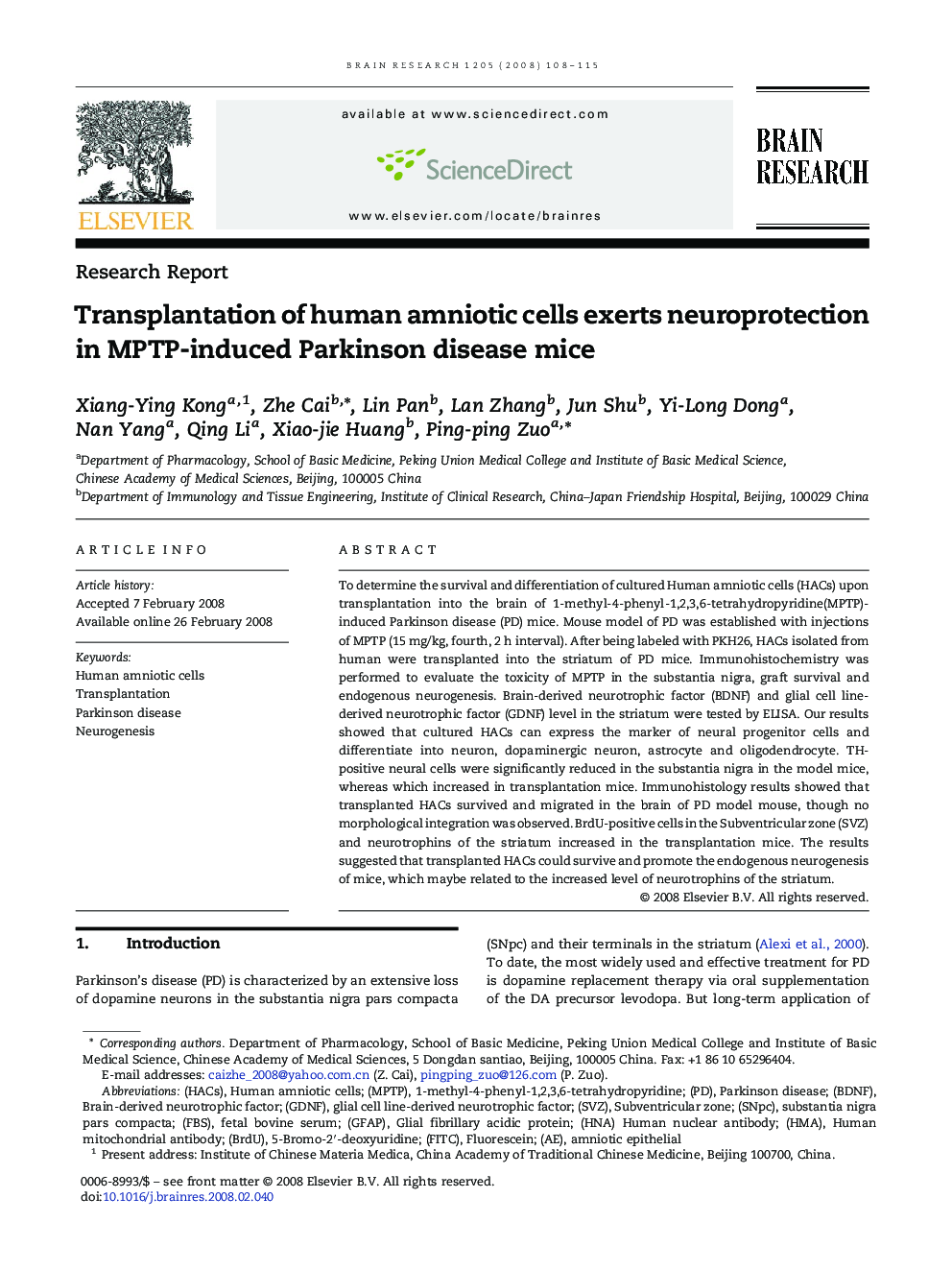| Article ID | Journal | Published Year | Pages | File Type |
|---|---|---|---|---|
| 4329811 | Brain Research | 2008 | 8 Pages |
Abstract
To determine the survival and differentiation of cultured Human amniotic cells (HACs) upon transplantation into the brain of 1-methyl-4-phenyl-1,2,3,6-tetrahydropyridine(MPTP)-induced Parkinson disease (PD) mice. Mouse model of PD was established with injections of MPTP (15Â mg/kg, fourth, 2Â h interval). After being labeled with PKH26, HACs isolated from human were transplanted into the striatum of PD mice. Immunohistochemistry was performed to evaluate the toxicity of MPTP in the substantia nigra, graft survival and endogenous neurogenesis. Brain-derived neurotrophic factor (BDNF) and glial cell line-derived neurotrophic factor (GDNF) level in the striatum were tested by ELISA. Our results showed that cultured HACs can express the marker of neural progenitor cells and differentiate into neuron, dopaminergic neuron, astrocyte and oligodendrocyte. TH-positive neural cells were significantly reduced in the substantia nigra in the model mice, whereas which increased in transplantation mice. Immunohistology results showed that transplanted HACs survived and migrated in the brain of PD model mouse, though no morphological integration was observed. BrdU-positive cells in the Subventricular zone (SVZ) and neurotrophins of the striatum increased in the transplantation mice. The results suggested that transplanted HACs could survive and promote the endogenous neurogenesis of mice, which maybe related to the increased level of neurotrophins of the striatum.
Keywords
(FITC)(MPTP)(PD)(FBS)(BDNF)(GFAP)1-methyl-4-phenyl-1,2,3,6-tetrahydropyridine5-bromo-2′-deoxyuridineParkinson diseasesubstantia nigra pars compactafetal bovine serumGlial cell line-derived neurotrophic factorBrain-derived neurotrophic factorFluoresceinsubventricular zoneNeurogenesisGlial fibrillary acidic proteinTransplantation
Related Topics
Life Sciences
Neuroscience
Neuroscience (General)
Authors
Xiang-Ying Kong, Zhe Cai, Lin Pan, Lan Zhang, Jun Shu, Yi-Long Dong, Nan Yang, Qing Li, Xiao-jie Huang, Ping-ping Zuo,
